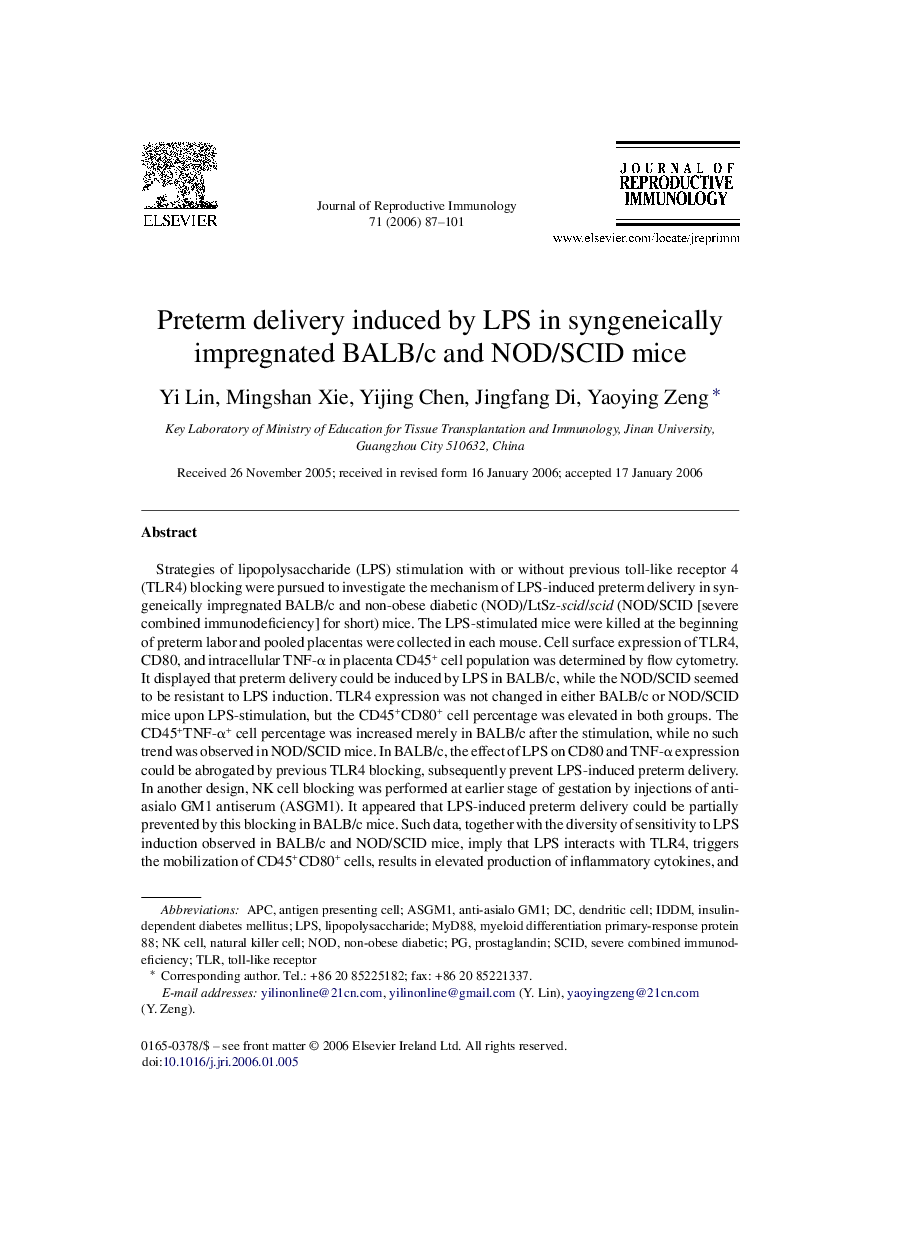| Article ID | Journal | Published Year | Pages | File Type |
|---|---|---|---|---|
| 3962187 | Journal of Reproductive Immunology | 2006 | 15 Pages |
Strategies of lipopolysaccharide (LPS) stimulation with or without previous toll-like receptor 4 (TLR4) blocking were pursued to investigate the mechanism of LPS-induced preterm delivery in syngeneically impregnated BALB/c and non-obese diabetic (NOD)/LtSz-scid/scid (NOD/SCID [severe combined immunodeficiency] for short) mice. The LPS-stimulated mice were killed at the beginning of preterm labor and pooled placentas were collected in each mouse. Cell surface expression of TLR4, CD80, and intracellular TNF-α in placenta CD45+ cell population was determined by flow cytometry. It displayed that preterm delivery could be induced by LPS in BALB/c, while the NOD/SCID seemed to be resistant to LPS induction. TLR4 expression was not changed in either BALB/c or NOD/SCID mice upon LPS-stimulation, but the CD45+CD80+ cell percentage was elevated in both groups. The CD45+TNF-α+ cell percentage was increased merely in BALB/c after the stimulation, while no such trend was observed in NOD/SCID mice. In BALB/c, the effect of LPS on CD80 and TNF-α expression could be abrogated by previous TLR4 blocking, subsequently prevent LPS-induced preterm delivery. In another design, NK cell blocking was performed at earlier stage of gestation by injections of anti-asialo GM1 antiserum (ASGM1). It appeared that LPS-induced preterm delivery could be partially prevented by this blocking in BALB/c mice. Such data, together with the diversity of sensitivity to LPS induction observed in BALB/c and NOD/SCID mice, imply that LPS interacts with TLR4, triggers the mobilization of CD45+CD80+ cells, results in elevated production of inflammatory cytokines, and finally results in preterm delivery. In addition, NK cells may be involved in the signaling cascade, and the lack of functional NK cells in the NOD/SCID may be why these mice appeared to be less sensitive to LPS-induced premature labor.
